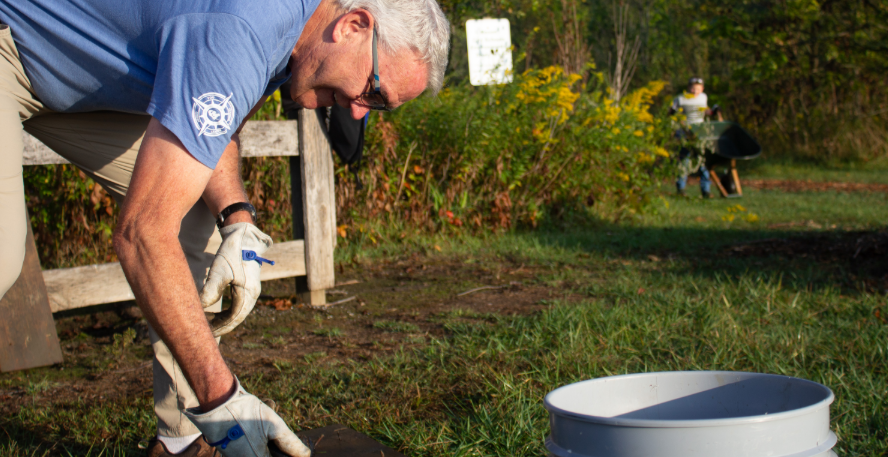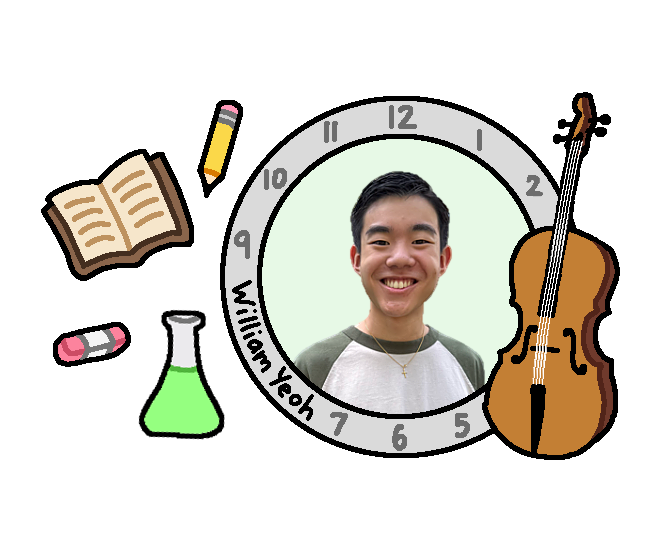Sahaj Datta | The Chronicle
For most teachers, retirement involves taking a step back from the school community, but for former English teacher Tim King, retirement has meant finding new ways to teach outside of the classroom.
King and twenty-five others are part of the Outdoor Wellness and Leadership Committee (OWL); an environmental study committee formed through Mason’s new initiative for retired teachers to come back and implement new ideas as part of their legacy. King said he wanted to ensure he could dedicate his efforts to environmental education full-time, which stems from his passion and dedication to nature.
“[My parents] both grew up close to nature, which is where my love for it came from,” King said. “My dad’s family had cottages on Lake Erie; My mother’s family had a cottage on the Trent River in Ontario, Canada. They drove their five children to Alaska in 1974. We camped all the way up and camped all the way back, and it was a 30-day trip.”

Retired Mason High School English teacher Tim King demonstrates mulching techniques to students and volunteers at Mason’s Environmental Study Area at Mason Elementary and Mason Intermediate School.
His lifelong connection to nature has carried over to his work at Mason. At the Environmental Study Area (ESA), located at Mason Intermediate and Mason Elementary (ME/MI), King and teachers use the area to teach about nature. King partners with students, teachers, and community members to maintain and expand the preserve.
Juniors Arushi Bajoria and Areet Arora, members of Science National Honor Society, volunteered at the ESA during their Journey Day to help clean up trash and guide younger students, contributing to the upkeep of the six-acre plot, which will later turn into twelve acres due to the future addition of a prairie.
“I not only wanted to do a service opportunity, but I also really love environmental science,” Bajoria said. “Right now, I’m taking AP Environmental Science as well, so that really triggered my interest to work with the environment and help preserve it. So when I heard ME/MI had a nature preserve, I really wanted to get involved and help out.”
Arora said that even though the event was for her own Journey Day, the main focus of the event was for younger children to help out at the location. She said a lot of outdoor opportunities go unnoticed, especially those that aren’t at the high school level.
“I actually did not know [the ESA] existed [until recently],” Arora said. “When I first saw [the ESA], I realized it’s an amazing place for kids to learn about the environment. Nature is an important part of our planet, and I love how [the district] has incorporated that by bringing nature into the classroom.”
Other student groups within Mason also joined King’s efforts at the ESA. Wafa Shaikh, a junior at MHS and a member of Hope Squad, volunteered with her organization to dig holes for oak trees, which were later planted by Students Involving and Befriending Students (SIBS), Middle SIBS, and Little SIBS. She said she believes early exposure to nature is necessary for the development and growth of children.
“We’re going through a crisis where kids don’t know how to play baseball, but they can hack into a computer,” Shaikh said. “Kids are very impressionable at this age, which is why I think it’s important to get them involved with nature early on.”
King said he and the OWL team had a larger vision for environmental studies at Mason. Beyond tree planting, he said his plans include a greenhouse on campus, a ropes course for Hope Squad to participate in team-building activities, and events like a maple syrup boil in the winter to give students hands-on experience outdoors.
“We want a nature preserve at Mason Middle School. We want to improve the nature preserve at Mason Early Childhood Center,” King said. “And it’s not just the elementary and intermediate schools. We want to have a partnership with the City of Mason so that Pine Hill is accessible [for students to learn about nature].”
Bajoria said she found King to be motivating and encouraging to all students, regardless of how large or small their contributions were. She said his role in the district is vital in order to get students interested in the outdoors.
“I think [Mr. King’s] initiative is really great because of the involvement,” Bajoria said. “It’s helping [kids of all ages] get involved with nature and help them figure out how to contribute to the environment.”
King said working with the district and getting to teach students about nature is a dream job for him. He said that if he weren’t immersed in his current position, he would be getting involved in other outdoor activities, which he said wouldn’t have been as fulfilling as combining his past experience teaching with his passion for the earth.
“It’s so important for students to be comfortable with nature at a young age and want to preserve it,” King said. “We want to work as hard teaching students about nature as we do teaching students about technology.”






